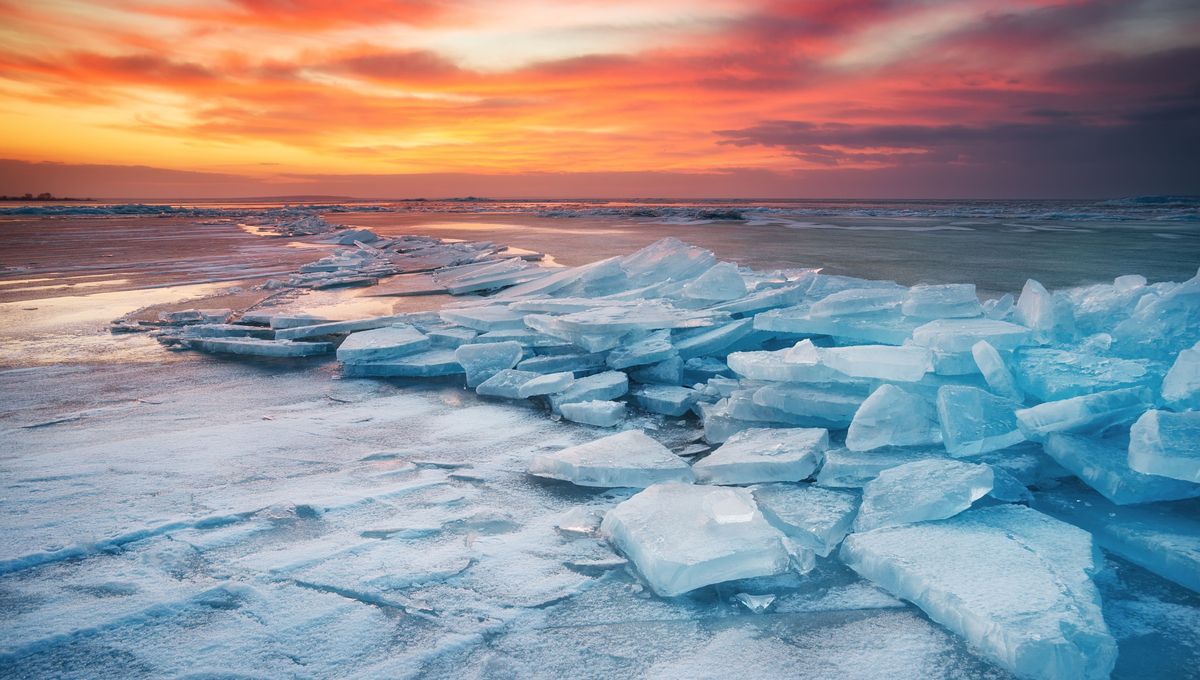
How and when humans arrived in North America has been hotly contested. The latest study to throw its hat into the ring suggests that the first settlers to arrive on the continent may have done so via a “sea ice highway”, which allowed them to traverse the frozen winter coast from Beringia, up to 24,000 years ago.
Until recently, it was widely accepted that the earliest inhabitants in the Americas were a group known as the “Clovis culture”, who settled on the continent around 15,000 to 13,000 years ago. These people, it was argued, made their way through an ice-free corridor that briefly opened between ice sheets.
However, the latest archaeological and genetic findings have pushed this timescale back, with estimates for the arrival of the first occupants ranging from at least 16,000 years to up to 33,000 years ago.
In fact, earlier this year, 23,000-year-old human footprints discovered in New Mexico provided evidence that people were wandering around North America during the Ice Age.
This updated time frame would suggest that early American settlers traveled from Beringia or Northeast Asia via the Pacific coast, as the interior route was blocked by two merged ice sheets between 26,000 and 14,000 years ago. However, the team behind the new research contends that environmental conditions along the coast would have made this difficult, perhaps even impossible.
“It remains unclear whether the coastal route was passable throughout this period, or if there were times when movement was blocked by marine-terminating glaciers, strong ocean currents, and/or prolonged sea ice conditions,” they write in an abstract of their findings, presented at the American Geophysical Union Annual Meeting (AGU23) on December 15.
To gain a better understanding of ocean conditions during this pivotal period of human migration, the team, led by Summer Praetorius of the US Geological Survey, created palaeoclimate reconstructions of the Pacific Northwest. Using ocean sediments, which contained fossilized plankton, they were granted a sneak peek at ocean conditions in the late Pleistocene, including ocean temperatures, salinity, and sea ice cover.
The resulting models the team built revealed that ocean currents would have been strong – more than twice the strength they are today – around 20,000 years ago, making it very difficult to travel by boat.
They also found that winter sea ice would have been abundant in the area until around 15,000 years ago, which could have provided an alternative, seasonal route for the first settlers. “Rather than having to paddle against this horrible glacial current, maybe they were using the sea ice as a platform,” Praetorius speculated in a statement.
This “sea ice highway” may have helped early Americans to hunt marine mammals and facilitated their coastal migrations into the Americas, the researchers theorize. Returning to the climate data, they identified two periods during which migration along the Alaskan coast, possibly via the “highway”, might have been viable – between 24,500-22,000 years ago and 16,400-14,800 years ago.
Although this remains a hypothesis for now, and may prove difficult to substantiate, the sea ice highway, at the very least, provides an interesting theory as to how humans first arrived in North America without easy access via land bridge or boat.
“Nothing is off the table,” Praetorius added. “We will always be surprised by ancient human ingenuity.”
The research was presented at the American Geophysical Union Annual Meeting (AGU23) in San Franciso.
Source Link: First American Settlers May Have Traveled Along "Sea Ice Highway" 24,000 Years Ago